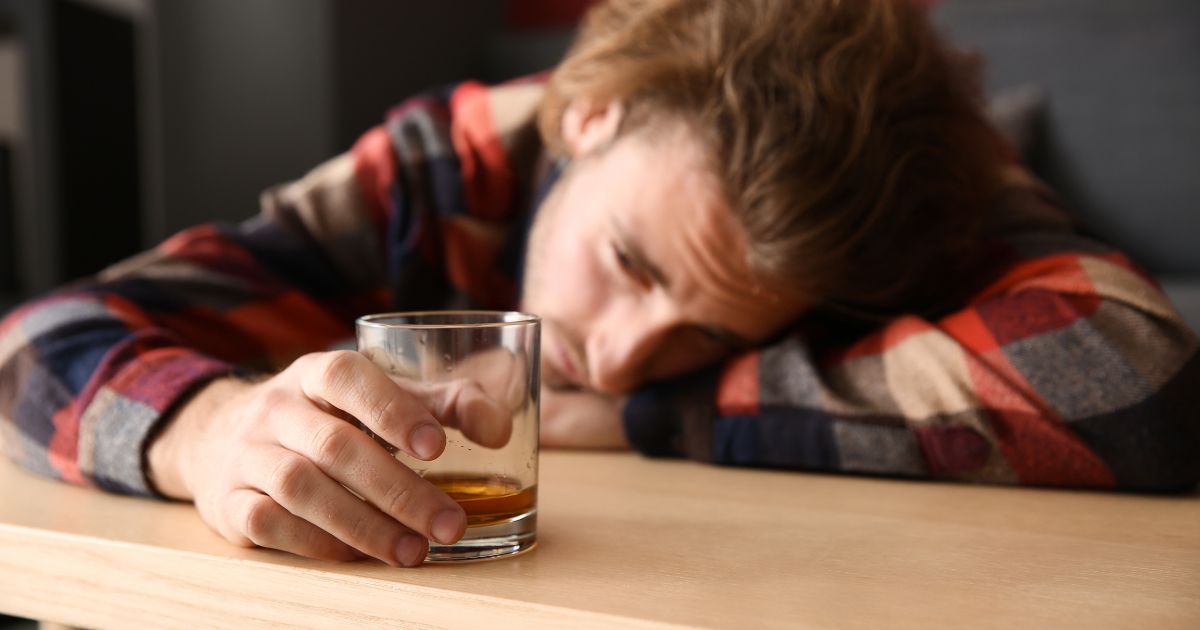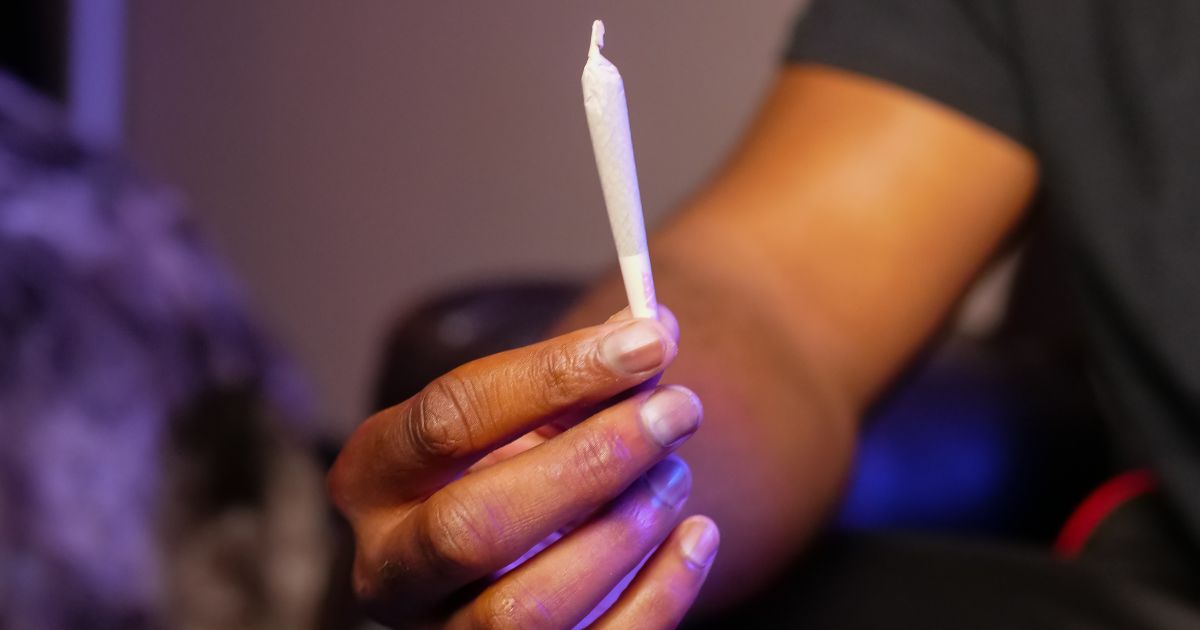Some people slide into alcoholism quickly, but usually, like most addictions, it’s a more gradual process that creeps up on people over time. In this article, we’ll go over how long it takes to get addicted to alcohol.
What Is an Alcohol Use Disorder?
Alcohol use disorder, also known as alcoholism, is a chronic condition in which a person is unable to regulate their alcohol consumption, particularly when it begins to significantly and severely affect their lives. It encompasses both physical and psychological dependency and is a disorder that tends to worsen over time if not treated with alcohol addiction treatmen.t
When Does Drinking Become a Problem?
Drinking alcohol begins to be a problem when it interferes with the other aspects of one’s life. It can be subtle at first—frequent social drinking or drinking to cope with stress—but progresses into patterns where alcohol becomes a central focus.
Key indicators include:
- Drinking more or for longer than intended.
- Needing increasing amounts of alcohol to feel its effects (tolerance).
- Drinking despite health, work, or personal consequences.
- Being unable to cut back or stop drinking despite attempts to do so.
If left unchecked, these patterns can lead to Alcohol Use Disorder, impacting both physical and mental well-being.
Signs and Symptoms of Alcohol Use Disorder
.Key features of alcoholism include:
- Craving: A strong urge or compulsion to drink alcohol.
- Loss of control: Inability to limit drinking on any given occasion.
- Physical dependence: Experiencing withdrawal symptoms such as nausea, sweating, shaking, or anxiety when alcohol use is stopped.
- Tolerance: Needing to drink more alcohol to achieve the same effects or feeling less impact from the same amount of alcohol.
Recognizing these signs early can help individuals seek the support and treatment they need to regain control over their lives.
Is Alcoholism a Mental Health Issue?
Yes, Alcohol Use Disorder is considered a mental health condition. It is recognized as a chronic brain disorder by organizations like the American Psychiatric Association (APA) and the World Health Organization (WHO). AUD alters brain function, specifically areas related to decision-making, impulse control, and reward systems. It often coexists with other mental health conditions, such as anxiety, depression, or trauma-related disorders, leading to a dual diagnosis that requires integrated treatment.
Effective treatment for AUD often combines medical intervention (e.g., detox, medications) with behavioral therapies (e.g., cognitive behavioral therapy) to address both the physical dependence and underlying psychological factors.
Get confidential help from our addiction treatment specialists in Orange County. Call to join our rehab program today!
Call 866-881-1184How Long Does It Take to Get Addicted to Alcohol?
Alcohol addiction does not develop at the same rate for every person. It varies greatly based on a range of factors, including genetics, environment, mental health, and drinking habits.
Genetic Factors
Individuals with a family history of alcohol use disorder (AUD) are at a higher risk of developing addiction due to genetic predisposition. Certain genetic variations can make people more vulnerable to alcohol’s effects or reduce their ability to metabolize it.
We have written more on whether alcoholism is genetic if you are interested in learning more.
Young People and Binge Drinking
Young people face all sorts of temptations, especially in high school and college, and one of the biggest is binge drinking. More than 39% of full-time college students engage in binge drinking (consuming five or more drinks) each month. Binge drinking is a risk factor for alcoholism and studies show that over 20% of college students meet the criteria for alcoholism.
Co-Occurring Mental Health Issues
Individuals with untreated mental health conditions may use alcohol to self-medicate, which can accelerate addiction. Those with a dual diagnosis (mental health disorder and substance use disorder) are more likely to become addicted quickly because alcohol may temporarily relieve symptoms, reinforcing its use.
The Cycle of Alcohol Addiction
The National Institute on Alcohol Abuse and Alcoholism has very useful breakdown of the cycle of alcohol addiction:
- Binge/Intoxication: Alcohol stimulates the brain’s reward system, leading to pleasurable effects that reinforce drinking behavior.
- Withdrawal/Negative Affect: Cessation of alcohol use results in negative emotions and physical discomfort, driving individuals to drink again to alleviate these feelings.
- Preoccupation/Anticipation: Individuals experience cravings and a preoccupation with obtaining alcohol, often leading to relapse.
These stages are associated with specific brain regions: the basal ganglia (binge/intoxication), extended amygdala (withdrawal/negative affect), and prefrontal cortex (preoccupation/anticipation). Chronic alcohol use alters the function of these areas, perpetuating the cycle of addiction.
Understanding this cycle is crucial for developing effective prevention and treatment strategies for AUD.
The Benefits of an Alcohol Rehab Center
Seeking help from a professional alcohol treatment program provides numerous benefits for individuals striving to overcome alcohol addiction. These programs offer structured, comprehensive care designed to address the complex physical, emotional, and psychological aspects of addiction.
Skilled and Experienced Treatment Specialists
Professional rehab centers employ skilled and experienced specialists who understand the challenges of alcohol addiction. These experts offer personalized care and use evidence-based approaches to guide individuals through the recovery process, helping them build coping mechanisms and strategies for long-term sobriety.
Medication-assisted Treatment for Alcohol Addiction
Many rehab centers offer medication-assisted treatment (MAT), which combines FDA-approved medications with therapy to alleviate withdrawal symptoms, reduce cravings, and promote stability during recovery. MAT can improve outcomes by making the early stages of sobriety more manageable and reducing the likelihood of relapse.
Evidence-Based and Holistic Therapies
Rehab programs address the root causes of addiction and promote overall well-being by utilizing evidence-based therapies, such as cognitive-behavioral therapy (CBT), motivational interviewing, and family counseling. Many centers also incorporate holistic approaches, such as yoga, mindfulness meditation, and art therapy, to support healing, balance, and resilience in recovery.
Aftercare and Relapse Prevention
Many rehab programs offer things like therapy, support groups, and relapse prevention planning to help people stay sober after they leave. These resources help people learn how to cope, deal with triggers, and find support to stay on track for the long haul.
Looking for quality substance abuse treatment that’s also affordable? South Coast accepts most major insurance providers. Get a free insurance benefits check now.
Check Your CoverageWhat Is Alcohol Rehab Like?
Alcohol rehab at South Coast Behavioral Health is a structured program that helps people beat alcohol addiction and stay sober for the long haul. Each step of the program gives you specialized support and resources to heal physically, emotionally, and mentally so you can get the help you need at every stage of recovery.
Alcohol Detox
Medical detox in California is typically supervised by medical professionals who provide medications and monitoring to manage symptoms and ensure safety. This process can result in withdrawal symptoms such as nausea, anxiety, sweating, or seizures. Seizures from alcohol withdrawal, known as Delirium Tremens (DTs), can be lethal, with a mortality rate of 37% without treatment.
Medication-assisted treatment for alcohol withdrawal symptoms like DTs involves tranquilizer drugs like benzodiazepines, administered at fixed intervals by medical experts.
Individuals must go through this process in order to proceed to alcohol addiction treatment.
Inpatient Alcohol Treatment
After successfully completing medical detox, you’ll receive inpatient treatment in Orange County California. There, you’ll receive medically-assisted treatment and dual diagnosis treatment to deal with any cravings or co-occurring mental health issues you may be battling.
We also offer residential treatment facilities in Costa Mesa, Irvine, and Huntington Beach for those who desire gender-specific treatment. There, patients get round-the-clock medical attention and monitoring while living at the institution full-time.
In addition to individual and group counseling and medication management, you’ll also have access to leisure activities and family support services.
Outpatient Alcohol Treatment
For those leaving inpatient residential treatment or partial hospitalization, intensive outpatient programs (IOP) are yet another gradual step forward on the road to recovery.
With a focus on group therapy, individual counseling, and education, clients undergoing Intensive Outpatient Treatment in Newport Beach can meet three to five days a week. Each session lasts three hours.
This level of care requires the least amount of attendance at a facility.
Aftercare and Sober Living for Alcohol Abuse
Aftercare and sober living programs provide ongoing support to sustain sobriety and prevent relapse. Aftercare may include regular counseling sessions, support groups, and alumni programs to maintain accountability and connection. Sober living homes are drug- and alcohol-free living environments that offer structure and peer support as individuals transition back to independent living.
How Do I Pay for Alcohol Rehab?
Paying for alcohol rehab can be a concern for many, but there are several options available to make treatment accessible. The best choice often depends on your financial situation, insurance coverage, and the specific program you choose.
Using Insurance for Rehab
Questions such as “how long does insurance pay for rehab” or “does insurance cover detox” are best answered by speaking with your health insurance provider directly.
The following is a list of prominent health insurance providers and their member benefits phone lines:
- Aetna — 1-(888)-632-386
- Blue Cross Blue Shield — 1-(800)-531-4456
- Cigna — 1-(800)-997-1654
- Humana — 1-(800)-777-6330
- Magellan Health — 1-(800)-327-7390
- United Healthcare — 1-(855)-780-5955
If your provider is not listed here, the member benefits phone number for your plan is often found on the back of your insurance card. Check your coverage before commencing treatment to avoid surprise expenses. South Coast is also delighted to assist you with verifying your insurance.
Private Pay
There is also the option of paying out of pocket. Obviously for most people this will be prohibitively expensive, however, many centers offer payment plans to make costs more manageable. You can also inquire about sliding scale fees, which adjust costs based on income.
What If I Don’t Have Health Insurance?
If you do not have health insurance, there are numerous methods that can help cover rehab. California offers state-funded programs such as Medi-Cal to people who fulfill specific income and eligibility requirements. These programs often provide less expensive treatment alternatives, although waiting lists might be considerable.









